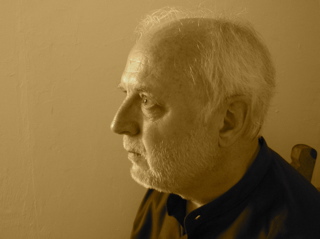
Composer Richard White was born in Brooklyn, New York in 1947 and now resides in Tucson, Arizona. His musical life has been as varied as it has been colorful. In his music, White has continually sought to communicate his ideas to the listener using strongly etched melodic lines, colorful, fresh harmonies and a solid architectural design. "The latter," he freely admits, "is the consummate challenge to the composer. Whether or not the listener is aware of it, architecture is the chief component of intelligibility. If music is still unintelligible to the listener -- even after repeated hearings -- whatever the composer is trying to get across will be completely lost. Most listeners want to arrive at their final destination with as few encumbrances as possible. It is the composer's responsibility to see to it that their 'trip' is safe one, and one that includes as many adventures as possible!"Finding ideas is not a problem for me, what to do with them is. Shaping ideas into a meaningful scenario in which they contrast, argue, fight, and eventually come to terms, is a monumental challenge for me. Ultimately, each piece of music must stand independently, be wholly logical, and with some assistance from the Muses, even sound inevitable. These qualities exist in all great music. I think form (structure and architecture) is really the issue for all creative artists. It is our struggle, our nemesis. In short -- how can we speak in the clearest, leanest and most unequivocal terms, yet excite the listener at the same time?"